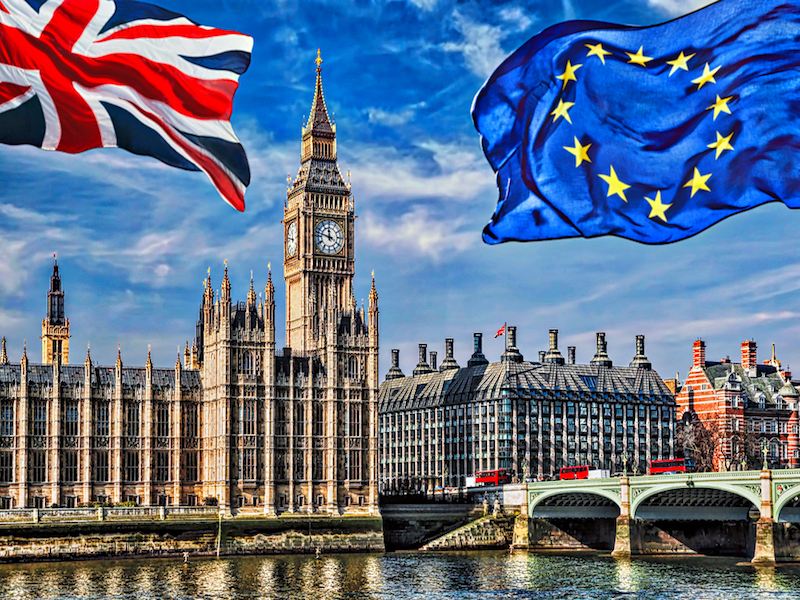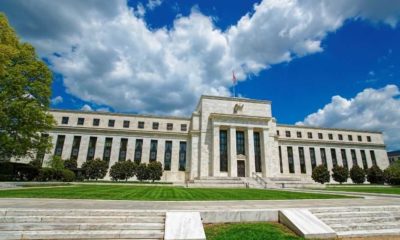Economy
Can Britain Become A Tax Haven Post Brexit?

There are many reasons that the United Kingdom is the capital and center of world trade and finance.
It started out with the British Empire choosing and implementing conditions that favored this from hundreds of years ago.
History is written by the winners, and in this case, the time zones, date lines, main ports, and centers of commerce were indeed mapped out and formed by the British Empire.
All made with the sole purpose of making trade and commercial deals as favorable as possible for the great map making an empire building nation.
Greenwich Mean Time (GMT) was established in 1675.
In that year, the Royal Observatory was built in an endeavor to assist mariners (think trade) to determine longitude at sea.
This became a standard reference time that was slowly stretched out across the country and eventually, the rest of the world.
It is the Alpha point of all other time zones.
All traders in London agree that the convenience of being able to clock what is happening in the Asian markets at breakfast, segue to the Wall Street markets at lunch, and finish the day with a look back before bedtime, at the Asian markets again, cannot be overemphasized.
[ms_divider style=”normal” align=”left” width=”100%” margin_top=”30″ margin_bottom=”30″ border_size=”5″ border_color=”#f2f2f2″ icon=”” class=”” id=””][/ms_divider]
[ms_featurebox style=”4″ title_font_size=”18″ title_color=”#2b2b2b” icon_circle=”no” icon_size=”46″ title=”Recommended Link” icon=”” alignment=”left” icon_animation_type=”” icon_color=”” icon_background_color=”” icon_border_color=”” icon_border_width=”0″ flip_icon=”none” spinning_icon=”no” icon_image=”” icon_image_width=”0″ icon_image_height=”” link_url=”https://offers.thecapitalist.com/p/warrenbuffet/index” link_target=”_blank” link_text=”Click Here To Find Out What It Said…” link_color=”#4885bf” content_color=”” content_box_background_color=”” class=”” id=””]Warren Buffett Just Told His Heirs What He Wants them To Do With His Fortune When He Dies. [/ms_featurebox]
[ms_divider style=”normal” align=”left” width=”100%” margin_top=”30″ margin_bottom=”30″ border_size=”5″ border_color=”#f2f2f2″ icon=”” class=”” id=””][/ms_divider]
This is maybe what Britain has in mind, as it takes steps to plan its way out of the European Union after the Brexit referendum.
Politicians in Westminster are now looking for a way to continue its dominance as the center of global capital – just as it has done for centuries.
One of these ideas that is gaining traction in the corridors of power is – to turn the post-Brexit United Kingdom into a tax haven.
This is not an altogether unexpected possibility.
Current non-sovereign jurisdictions that are commonly labeled tax havens in proximity are:
- Jersey (U.K.)
- Isle of Man (U.K.)
- British Overseas Territories (Bermuda, British Virgin Islands, Cayman Islands).
The corporate tax rates seen on a global scale that the British government is predicting for the next few years are indeed impressive.
The graph below places the United Kingdom at the top of the list.

In the aftermath of the June 23 Brexit vote results, Prime Minister David Cameron, soon to announce his resignation, and his cabinet called for the cutting of all top corporate tax rates from 20% down to 15%.
Theresa May, the Prime Minister’s successor, has not touched on that proposal since she took office this month on July 13.
The scrapping of corporate tax altogether is being called for by some pro-Brexit (Cameron supporting) members of Parliament.
More than a few economists expect the proposal to be revisited, or at the very least it must be used as a bargaining chip to win more favorable terms from a still disgruntled the European Union.
Throughout Europe, finance ministers view tax competition as a worrying prospect.
With this in mind, European leaders recently agreed to plan on curtailing tax loopholes – they can cost an approximately estimated $100 billion per annum in lost revenue for countries.
With a quick example to illustrate the point: the graphic below clearly shows that if there is a significant discrepancy between tax rates in countries, it results in a decided unfair advantage for the company in the lower corporate tax bracket.

The EU has sanctioned the following countries with permissive and conciliatory tax codes:
- Ireland
- Luxembourg
- The Netherlands
This has facilitated multinationals like Starbucks, Microsoft, and Apple to sidestep tax bills and shift profits.
The concern is that to gain more cooperation from the EU, Britain may be induced to offer lower rates and more tax breaks.
This will lead to a knock on effect of making the rest of Europe within the EU less competitive.
It might be a humbling experience for Britain to be able to observe the tax haven economic development tactics that are being used by the British Overseas Territories listed above.
The benefits of this are even more clearly seen closer to home in Ireland, which recently announced record GDP growth and had a corporate tax rate set at 12.5%.
These entirely orthodox strategies have been credited with resuscitating the Irish economy and helping the country build a technology and pharmaceutical sector.
Some U.S. multinational companies, such as Medtronic, have merged with some local Irish enterprises in an apparent inversion.
This resulted in the official headquarters of the company and some of its assets, moving to Ireland.
Economists are quick to warn that these tactics may not work for Britain.
Steep tax cuts are more cost effective for the economies of small countries.
In countries with underdeveloped business sectors, any losses of tax revenue are offset by new development.
This is clearly not a description that fits a post-Brexit Britain.
Britain is still the hub of global financial services, however.
Britain is now free to change any taxes that are affecting that all-important sector, now that it has shaken loose of the restraints placed on the country by the European Union.
In return, the EU could put restrictions on its markets in retaliation.
EU countries could discriminate against any U.K attempts to become a tax haven following on from that.
The United Kingdom’s strategy could change from a tax based one to a regulatory one taking all these constraints into consideration.
Britain is not in a position to be able to tempt multinational corporations into relocating their headquarters to London.
In the past, corporate tax cuts resulted in remarkably few jobs being created for the population even if they did cause a rise in the base average GDP.
According to the opinions held by some prominent political economists, when the United Kingdom leave the European Union altogether, the real criteria will be with loosening the currently hyper-tight environment, financial and labor regulations and an unsafe tax haven.















